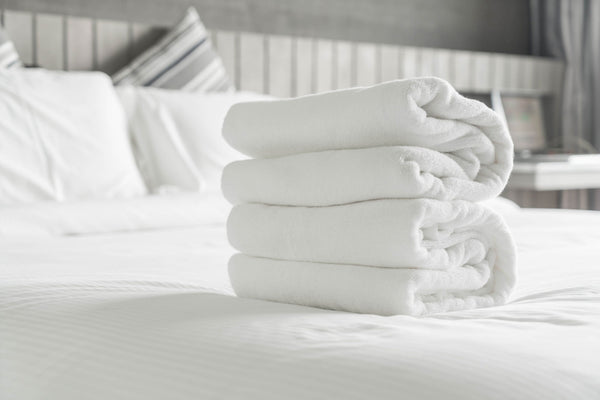Your Cart is Empty

March 01, 2024 3 min read
The subtitle is "From Industrial Strength to Salon Chic: Exploring the Role of Textiles Across Five Diverse Industries"
Textiles play an important and diverse part in the vast landscape of global businesses. They serve as fundamental components in everything from industrial gear to the charming decor of high-end salons. Textiles are used in such a wide variety of applications. Textiles are essential to the operations and atmosphere of a wide variety of industries, including the industrial sector, the healthcare industry, the hospitality industry, the food and beverage industry, and the salon industry. Textiles serve both practical and aesthetic purposes. In this article, we will conduct an in-depth investigation of each of these sectors, focusing on the ways in which textiles are utilized, valued, and innovated within the specific contexts of each of these businesses.
First, the industrial sector: the domain of long-term reliability and practicality
When it comes to the industrial sector, textiles are highly valued because to their longevity, strength, and versatility in a wide variety of applications. Industrial textiles play an essential part in assuring workplace safety, efficiency, and productivity. These textiles include heavy-duty machinery coverings and protective gear, as well as filtration systems and insulation materials.
The importance of compliance, cleanliness, and comfort in healthcare delivery
For the purpose of ensuring compliance with stringent hygiene regulations, preserving cleanliness, and providing comfort, textiles are a crucial component in healthcare environments. Textiles used in healthcare must fulfill stringent requirements for durability, sterility, and infection control. These needs must be met by hospital bed linens, patient gowns, surgical drapes, and sterilization wraps. Additionally, these textiles must provide patients and healthcare staff with an environment that is both comfortable and hygienic.
3. The Art of Hospitality: Creating Experiences That Ill Never Forget
Textiles are essential components in the hospitality business, as they play a significant role in the creation of unforgettable experiences for guests and in the enhancement of the atmosphere of hotels, restaurants, and resorts. For the purpose of enriching the overall guest experience and setting the stage for memorable moments, hospitality textiles are designed to inspire a sense of comfort, style, and sophistication. This includes sumptuous beds and plush towels, as well as exquisite table linens and colorful drapes.
In the fourth place, we have food and beverage: safety, hygiene, and presentation.
In the food and beverage sector, textiles play an important part in assuring the safety of food, maintaining hygiene, and presenting food in an appealing manner. It is vital to have textiles in food and beverage enterprises in order to maintain hygiene, minimize cross-contamination, and enhance the visual appeal of the establishments. These textiles include everything from kitchen towels and aprons to chef uniforms and tablecloths. Furthermore, in the hectic conditions of kitchens, workers are protected from burns and injuries by specialist textiles such as oven mitts, pot holders, and heat-resistant gloves.
5. Salon: Dedicated to Providing Professionalism, Comfort, and Style
In the beauty salon sector, textiles are highly appreciated because of the role they play in establishing an environment that is fashionable, pleasant, and professional for both customers and stylists. Textiles, which include everything from salon capes and towels to hairdresser uniforms and decorative accents, play a significant role in the overall aesthetic and functioning of salon facilities. These textiles reflect the salon's brand identity and commitment to providing exceptional haircare and beauty services.
The forces that are driving innovation and sustainability across industries are as follows:
There are five different sectors that are driving factors that are defining the future of textile use and manufacturing. These industries are innovation and sustainability. Industries are increasingly adopting sustainable practices and innovative solutions in order to meet the ever-changing demands of consumers, businesses, and the planet. These practices and solutions include the development of eco-friendly fabrics and recycled materials, as well as the implementation of advanced manufacturing techniques and digital technologies.
Textiles offer an infinite number of possibilities across all industries.
To summarize, textiles are components that are indispensable in a wide variety of sectors. They serve a wide range of functions and purposes, which contribute to the safety, comfort, efficiency, and aesthetics of workplaces and environments all over the world. Whether it be the salon chic of attractive textiles or the industrial strength of heavy-duty materials, the possibilities for the use of textiles and innovation are virtually limitless. This is because the demands and problems that are specific to each industry are what drive the possibilities. Textiles will surely continue to play a significant role in the success of industries as they continue to develop and adapt to shifting fashions and technologies. Textiles provide countless options for creativity, functionality, and sustainability in the contemporary world.

Sign up to get the latest on sales, new releases, and more.